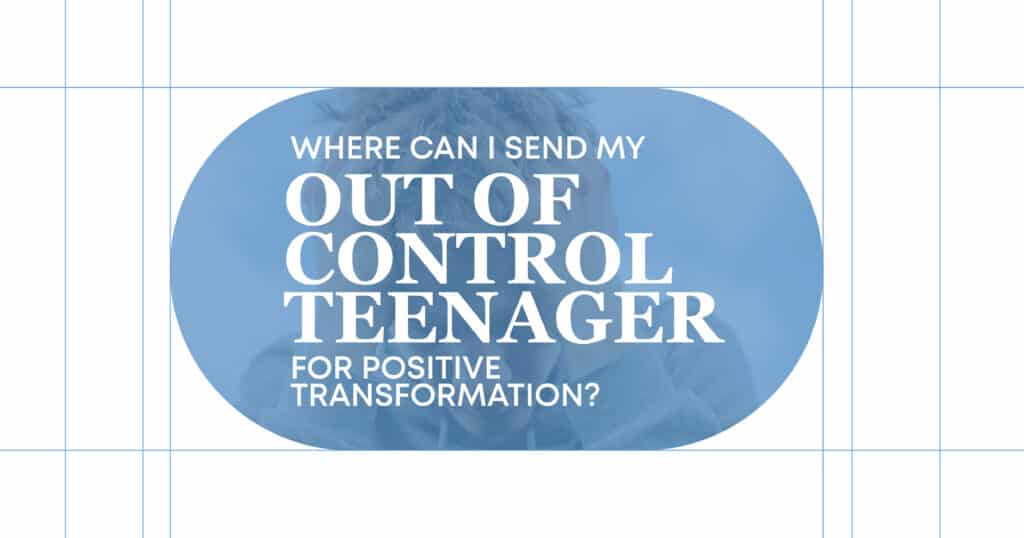Social anxiety disorder in teens is a growing concern for parents and educators alike. Adolescence is a time of significant emotional, social, and psychological development. However, it can also be a period filled with overwhelming fear and discomfort in social situations for some teenagers. If left unaddressed, social anxiety disorder in teens can significantly hinder a teen’s development, affecting their ability to interact, perform academically, and engage in normal daily activities. This article will explore the signs, symptoms, causes, and treatments for social anxiety in teenagers, offering helpful insights and support strategies for parents and educators.
Understanding Social Anxiety Disorder in Teenagers
Social anxiety disorder in teens is a condition that involves intense fear or anxiety in social situations. Teens with social anxiety often experience excessive worry about being judged or humiliated by others. This disorder can cause teenagers to avoid situations where they might have to interact with others, such as school, social events, or even speaking in front of a class.
Here’s an overview of how social anxiety affects teens:
- Extreme Worry. Teens often feel extreme nervousness in everyday situations, such as talking to classmates or participating in group activities.
- Physical Symptoms. Sweating, trembling, nausea, or even panic attacks may occur when they are in social settings.
- Avoidance. Teens may withdraw from social activities or isolate themselves to avoid uncomfortable situations.
Understanding the unique challenges teens face with social anxiety disorder is critical for providing appropriate support and helping them navigate their daily lives.
Signs and Symptoms of Social Anxiety in Teens
Recognizing the signs of social anxiety in teenagers is the first step in offering them the help they need. While each teen may show different symptoms, common signs of social anxiety disorder can manifest in various ways.
Some teen social anxiety symptoms to watch for include:
- Fear of Social Situations. Teens with social anxiety may avoid situations like group discussions, school dances, or even answering questions in class.
- Excessive Worrying. They may constantly worry about what others think of them, fearing judgment or embarrassment.
- Physical Symptoms. Symptoms like rapid heartbeat, sweating, trembling, or difficulty breathing may occur when faced with social interactions.
- Negative Self-Talk. Teens may believe they are awkward or unlikable, leading to further isolation.
These symptoms can severely affect their social life, relationships, and overall well-being. Early recognition allows for timely intervention and support.
Causes of Social Anxiety Disorder in Adolescents
Understanding the causes of social anxiety disorder in teens can help identify the underlying factors that contribute to the condition. Social anxiety doesn’t develop overnight; multiple factors, including genetic, environmental, and psychological factors, influence it.
Here are some potential causes of social anxiety disorder in adolescents:
- Genetics. Teens with a family history of anxiety or other mental health conditions may be more likely to develop social anxiety.
- Environmental Factors. Experiences such as bullying, rejection, or trauma can contribute to the development of social anxiety.
- Negative Experiences. Repeated negative social experiences, like being made fun of, can cause a teen to become anxious in similar situations.
- Overprotective Parenting. Some teens may develop social anxiety due to overly protective or controlling parenting styles, which can limit their social experiences.

Addressing these underlying causes can be a key step in treating social anxiety disorder in teens.
Effects of Social Phobia on Teenagers’ Lives
Teenage social phobia, or social anxiety, has far-reaching effects on a teen’s life, particularly in their social, academic, and emotional development. It can prevent teens from engaging in social activities and significantly hinder their ability to perform in school.
Some ways social anxiety disorder affects teenagers include:
- Academic Struggles. Teens with social anxiety often have difficulty participating in class, giving presentations, or asking for help.
- Social Isolation. Teenagers may isolate themselves from friends, extracurricular activities, and family events due to a fear of judgment.
- Low Self-Esteem. Ongoing feelings of inadequacy or embarrassment can lead to decreased self-confidence and self-worth.
- Mental Health Issues. Prolonged social anxiety may contribute to other mental health problems, such as depression or substance abuse.
Understanding how social anxiety disorder can impact all aspects of a teen’s life is vital for providing the appropriate support.
Effective Treatments for Social Anxiety Disorder in Teens
Fortunately, social anxiety disorder treatment in teens is highly effective when approached with the right combination of therapies and support systems. These treatments aim to help teens manage their anxiety and improve their social and emotional functioning.
Here are some common and effective treatment options for social anxiety in teens:
- Cognitive-behavioral therapy (CBT) helps teens identify and change negative thought patterns, teaching them how to approach social situations with confidence.
- Exposure Therapy. This type of therapy gradually exposes teens to social situations they fear, helping them build coping skills and reduce anxiety over time.
- Medication. In some cases, doctors may prescribe medications like antidepressants or anti-anxiety medications to help manage symptoms.
- Mindfulness and Relaxation Techniques. Teaching teens relaxation techniques, like deep breathing or meditation, can help reduce anxiety in social situations.
Strategies for Managing and Overcoming Social Anxiety in Adolescence
Overcoming social anxiety in adolescence is a journey that requires both internal effort and external support. Teens and parents can work together to create a supportive environment that fosters growth.
Here are some strategies for managing and overcoming social anxiety:
- Gradual Exposure. Start small by encouraging teens to participate in low-pressure social situations and gradually increase the level of difficulty.
- Positive Reinforcement. Celebrate small successes to build confidence and reduce fear of social interactions.
- Role-Playing. Practice social scenarios with your teen to prepare them for real-life interactions.
- Open Communication. Encourage open communication and reassure your teen they are not alone in facing this challenge.
By consistently applying these strategies, teens can gradually overcome their fears and become more comfortable in social settings.
Support Systems and Resources for Teenagers with Social Anxiety
A strong support system is crucial for helping teens navigate social anxiety disorder. Whether it’s from family, friends, or professional therapists, the right resources can help them manage anxiety and thrive.
Here are some resources and support systems for teens with social anxiety:
- Therapists and Counselors. Professional help from trained therapists specializing in teen mental health can provide personalized strategies for managing anxiety.
- Support Groups. Group therapy or peer support groups provide a safe space for teens to share experiences and learn from others.
- Online Resources. Websites, forums, and apps dedicated to mental health can offer advice and exercises for teens dealing with social anxiety.
These resources can empower teens to build confidence and reduce the impact of social anxiety on their lives.
Compassionate Social Anxiety Support at Hillside Horizon for Teens
At Hillside Horizon for Teens, we provide specialized programs designed to help teens struggling with social anxiety disorder. Our compassionate approach focuses on providing a safe, supportive environment where teens can learn to manage their anxiety and build self-confidence. Whether through individual therapy, group counseling, or mindfulness training, we offer a holistic approach to overcoming social anxiety.
If your teen is struggling with social anxiety disorder, contact Hillside Horizon for Teens today.

FAQs
- What are the common signs and symptoms of social anxiety in teenagers, and how do they manifest in daily life?
Common signs of social anxiety in teens include avoiding social situations due to fear of judgment or humiliation. Physical symptoms such as sweating, trembling, or nausea may occur during social interactions or presentations. These symptoms often affect their ability to perform academically, make friends, and engage in everyday activities.
- What are the potential causes of social anxiety disorder in adolescents, and how do they differ from those in adults?
Social anxiety disorder in teens can be caused by genetics, past trauma, or overprotective parenting, influencing their emotional development. The disorder may arise in teens due to developmental challenges and difficulty navigating social expectations. In contrast, adults may experience deeper-rooted fears or anxieties based on past life experiences or prolonged social struggles.
- How does social phobia impact the lives and academic performance of teenagers?
Social phobia significantly affects a teen’s ability to participate in school activities, leading to withdrawal from peers and group tasks. Teenagers may struggle to engage in class discussions, presentations, or collaborative projects due to overwhelming anxiety. The fear of being judged can limit their social interactions, leading to loneliness and decreased self-confidence.
- What effective treatments are available for managing social anxiety disorder in teens, and how do they work?
Cognitive-behavioral therapy (CBT) is effective in changing negative thought patterns and teaching coping strategies to manage anxiety. Exposure therapy helps teens gradually face their social fears, reducing avoidance behaviors and anxiety over time. In some cases, medication such as antidepressants or anti-anxiety drugs may help manage symptoms and improve social functioning.
- What strategies can help in overcoming social anxiety in adolescence and improving teenage social interactions?
Gradual exposure to social situations, starting with low-pressure environments, can help teens face their fears in small steps. Positive reinforcement and praise for attempting social activities can encourage confidence and reduce anxiety in future situations. Role-playing social interactions at home and maintaining open communication with supportive adults can also improve social skills and ease anxiety.




